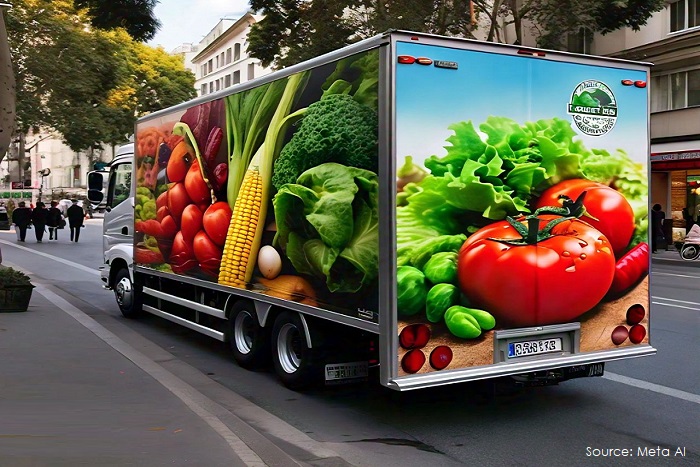Science & Environment
Navigating the Future: How Satellite Technology is Transforming Agricultural Supply Chain Management

- Satellite technology revolutionizes agriculture through precision farming, optimizing resource use and promoting sustainability.
- It streamlines supply chains by enhancing tracking and monitoring, ensuring efficient and transparent operations.
- Empowering global farmers with remote access to vital data, it fosters informed decision-making and sustainable practices.
In the vast areas of agriculture, an invisible revolution is taking place, fueled by the advancement using satellites. This revolutionary approach isn’t simply boosting efficiency, it is also changing the way supply chain management functions within the business.
Precision Farming: A Precision Revolution
Satellite technology has brought us into the age of precision farming in which every square area of the farm is carefully monitored and controlled. Imagine a farmer having access to in real-time information on the condition of their crops and soil moisture levels and forecasts for weather. Armed with this information they can make precise adjustments to fertilizer and irrigation practices to reduce waste while increasing yield. The precision of this approach not only improves production but also helps promote environmentally sustainable practices in agriculture, which are essential in the long run to ensure environmental sustainability.
Streamlining Supply Chains
The challenges of management of supply chains in the field of agriculture are well-known that span multiple stages beginning with cultivation and ending with distribution. Satellite technology eases the process through precise tracking capabilities and monitoring. Suppliers and farmers can track the movements of their produce as well as livestock to ensure timely delivery as well as limiting loss. The transparency of this system not only enhances productivity but also increases product quality and satisfaction of customers.
Sustainability at its Core
Beyond the efficiency benefits Satellite technology also can play a crucial role in the promotion of sustainable farming methods. Through continuous monitoring of the use of land, crop health as well as environmental conditions, satellites help farmers make educated choices. They can spot and tackle concerns like erosion of soil as well as pest-related outbreaks and the effects of water stress before they get out of hand which reduces environmental impacts and protects nature’s resources for the future.
Empowering Farmers Globally
In many parts of the world the access to modern technological and agricultural knowledge is difficult, especially for farmers on a small scale. Satellite technology can bridge this gap, providing vital insights which can be accessed remotely. Rural farmers have access to crucial information about the weather, trends in markets as well as the best practices for agriculture and help them make well-informed decisions that increase production and improve their livelihoods.
Looking Ahead: Innovations on the Horizon
The technology of satellites is constantly evolving and improving, the possibilities to revolutionize the management of supply chains and agriculture is unstoppable. The future developments could include improved information analytics, more efficient connectivity solutions, as well as the connectivity to artificial intelligence. These advancements will help enhance farming processes, improve resistance to the effects of climate change and help meet the rising worldwide demand for sustainable food.
It is clear that satellite technology isn’t just an instrument, but rather an engine for turning agriculture into a better environmentally sustainable and efficient business. If we are able to embrace these advancements that are paving the way to a future in which farming is not just profitable but also eco-friendly in ensuring food security in the future generations.

























































